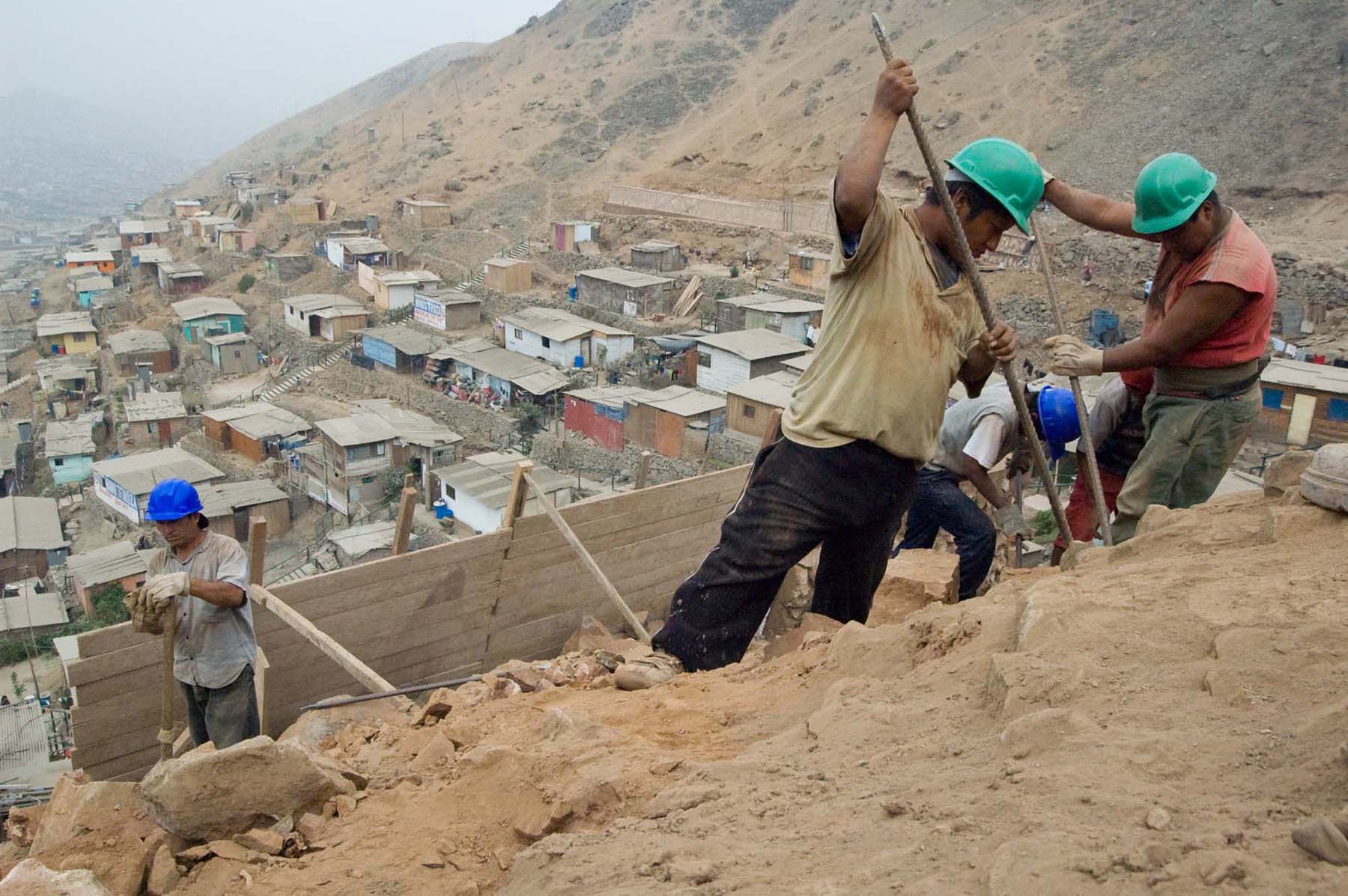
LIMA, Peru (BP)–Only squatters can identify the differences between communities hastily constructed on the dusty, unclaimed land on Lima’s outskirts. With water accessible only by truck and no electricity except that siphoned from nearby lines, poverty-stricken Peruvian villages named Defenders, Stony Ground and Paradise are either bitter truth or wishful thinking.
Poor mountain people are flooding into the city looking for jobs amid an unemployment rate of more than 7 percent. These job seekers form pueblos jovenes (squatter villages) with no funding for infrastructure because the villages are not recognized by the municipal government. These collections of squatter communities encircle upscale downtown areas boasting Starbucks and a T.G.I. Friday’s restaurant.
With loose rocks revealing the people’s susceptibility to landslides, and rats taking residence in the wood-pallet shacks, Las Torres de la Rinconada (The Towers in the Corner) is one of the squatter villages.
“It’s called ‘The Towers in the Corner’ and it really is,” International Mission Board missionary Kevin Shearer says. “It’s one community among 50 communities in the general area where there are no churches. You do the math there, you’re talking 10,000 people and higher that do not have the Gospel.”
Shearer discovered Las Torres de la Rinconada, nestled in the hills of southern Lima, while talking to a guard at his daughter’s school. A question about the problems in the worker’s community turned into a discussion about landslides and the need for retaining walls to keep the area’s homes from sliding to the valley floor. After hearing that the villagers had spent five years petitioning every nonprofit agency in the area for help, Shearer said, “I’ll see what I can do.”
Months later, after meeting with local government officials and enlisting 32 local residents for the job, Shearer began overseeing the construction of not only retaining walls, but five sets of stairs snaking up the hillside to give the Peruvians better access to their homes. Approximately 200 trees donated to the villagers also are bolstering their resolve to make other improvements, such as planting grass on their small parcels of land.
HIGHER PURPOSE
“I told them if I come in here, I have ulterior motives,” Shearer says. “I want to tell you the Gospel.”
The residents immediately voted to turn their community center into a church. The freshly painted blue building now stands like a beacon against the drab hillside — a proud addition to the revived area.
During the first Sunday service, the small building was packed out as Shearer and a Peruvian believer shared the Gospel.
Seventeen stood that day to accept Christ. The next week, six more made professions of faith. Since then, 20 adults come to the weekly meetings led by Peruvian believer Victor Castilla, an engineer.
“I’m not a preacher, but I do my best,” Castilla says. “When we first got here, their faces were serious and hopeless. You can see now, everyone smiles and wants to do something. They know there is a God now. This is going to be a strong tower for a whole area.”
Castilla became a believer about 20 years ago after a Christian said Jesus could help him with his addictions to cocaine and women. Today, Castilla hikes up and down the rocky hillsides, inspecting the construction and loving the villagers of Las Torres. When his car broke down, First Baptist Church in Rogersville, Ala., one of Shearer’s supporting churches, helped.
“They took up an offering to the penny what he needed to fix his car,” Shearer says. “I got to be the messenger,” and see Castilla ‘s tearful acceptance of the Alabama church’s generosity.
Castilla ‘s commitment to the village also has led his home church to adopt the new church plant.
GOD IS CALLING
Seeing the changes in poor villages like Las Torres confirms the call Shearer received to Peru more than 20 years ago at a Mississippi Baptist Convention meeting.
A missionary pointed to the corner of the balcony where Shearer was sitting as she addressed the crowd, “We need missionaries in Peru. Maybe God is calling one of you.”
“It was like an arrow right into my heart,” says Shearer, then pastor of Harmony Baptist Church in Quitman, Miss. “I felt it at that moment. I came back and I told Pam, ‘I think God wants us to go to Peru.’ She laughed and said, ‘You’re crazy.'”
He began to feel crazy a month later when he began replaying the missionary’s insistent plea for Peru in his dreams. For 21 nights straight, he slept three hours or less as he wrestled with God. Finally, while hearing the song “People Need the Lord” at a church meeting, Kevin heard the words “Peru needs the Lord” instead and surrendered to missions. Pam felt God’s call a few months later.
Today, the Shearers serve in the city God first laid on their hearts in Mississippi. When they hike the hillsides of Lima and sit in the crude homes of the poor, they know God called them to South America to make a difference among the people of Peru.
“It’s hard for me to ignore the burden on my heart when I go into these areas,” Kevin Shearer says. “Once people get exposed to the Word of God and see it for themselves, it begins to change them. We reach the urban poor one person at a time.”
–30–
Dea Davidson covered this story as an overseas correspondent with the International Mission Board.

















